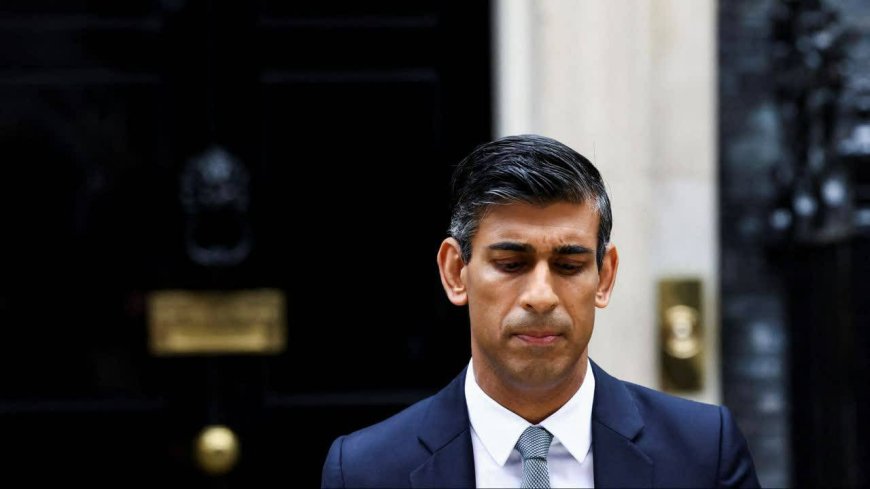Rishi Sunak's Popularity Plummets: Dark Clouds of Social Discontent Gather Over Britain
According to a recent report from the YouGov polling institute on December 13, the incumbent British Prime Minister, Rishi Sunak, finds himself in a true political crisis. Mr. Sunak, with a woeful score of -49 on the pure popularity index, finds himself today embroiled in a far worse position than his predecessor, Boris Johnson, who had scored -40 at the time of his resignation.

This recent poll, conducted the day after the House of Commons voted on the controversial "Rwanda Plan," the Conservative government's strategy to deport asylum seekers to Rwanda, sheds light on the growing discontent among British citizens. It is quite striking that over 70% of the respondents expressed their dissatisfaction with Sunak as Prime Minister. The data from the poll further reveals that only 21% of participants continue to hold a favorable view of Sunak.
Accordingly, the net approval rating, derived from the subtraction of these figures, paints an extremely bleak picture for Sunak and his team, with an abysmal score of -49. This rating marks a 10-point decline from a similar poll conducted in late November. Furthermore, the intra-party poll, which measures the ratings of members of the Conservative administration's cabinet, reveals that Sunak has achieved the lowest score among his colleagues, standing at -25.4. This alarming revelation signifies that the prime minister's popularity has now reached a perilous point on the downward slope.
While it may be plausible to assume that Sunak harbors hopes of a positive performance to influence voters in the upcoming general election, the December 12 vote in the House of Commons on the much-debated Rwanda Plan casts doubt on this prospect.
The Rwanda Plan, which secured initial approval with 313 positive votes against 269 nays, is still mired in disagreements among conservative party members regarding its implementation. Furthermore, the British Supreme Court's declaration of its illegality poses formidable challenges to the realization of the long-standing strategy aimed at addressing illegal immigration.
This contentious plan holds significant political implications that warrant attention. Firstly, it has existed as a proposal since the premiership of Boris Johnson, yet it remains unimplemented. Secondly, it has not only plagued the administrations of Johnson and Liz Truss but has also ensnared the current administration in a plethora of domestic and foreign predicaments. Moreover, it has already cost the British taxpayer a staggering sum of 240 million pounds ($300 million).
Nevertheless, while the local media may attribute the sharp decline in the prime minister's popularity rates to the issue of immigration, Sunak's administration has failed to deliver an acceptable performance in tackling other pressing domestic and international challenges facing the UK.
According to Keiran Pedley, Political Director at Ipsos, a multinational consultancy and market research company, the main factors contributing to public dissatisfaction with Prime Minister Rishi Sunak are concerns over the soaring cost of living, the immigration issue, and the endless crisis gripping the NHS. These factors undoubtedly present unsurmountable obstacles for Sunak in the forthcoming 2024 general elections.
Moreover, the recent wave of strikes in the waning months of 2023 serves as a stark reminder of the dissatisfaction harbored by various unions towards the current administration. Over the weekend, public transport workers in Northern Ireland undertook a 48-hour strike over pay, with officials cautioning that the strike would have severe repercussions on transportation during the busiest holiday season.
Additionally, the crises surrounding energy bills, the housing shortage leading to an unprecedented surge in homelessness, which includes a distressing figure of 82,000 children, the economic downturn, and the government's utter failure to provide effective solutions to these calamities have all cast an ominous shadow over Rishi Sunak's political future.
While there is overwhelming and significant discontent among the British public towards Sunak's administration, predicting the exact timing of the looming socioeconomic catastrophe that may arise as a result remains challenging.













































